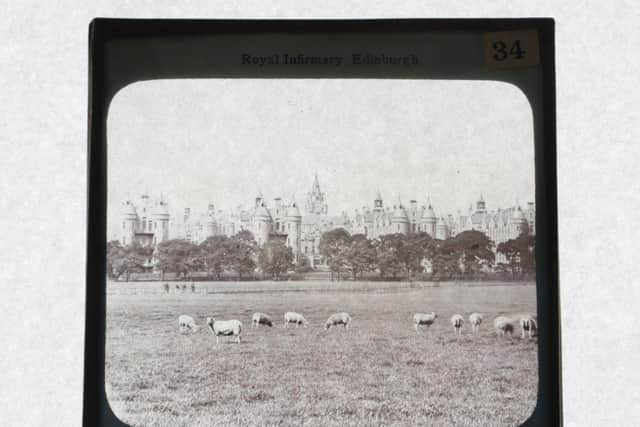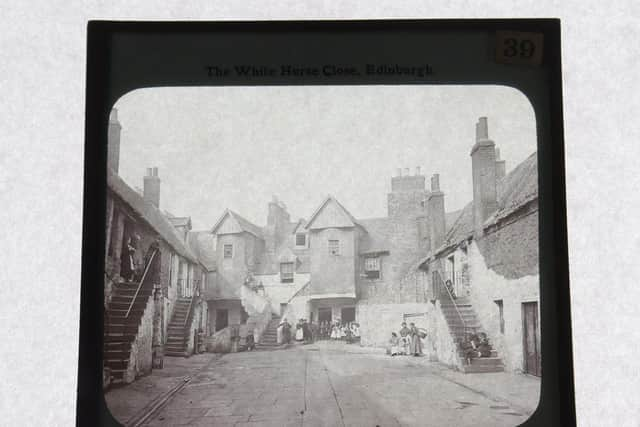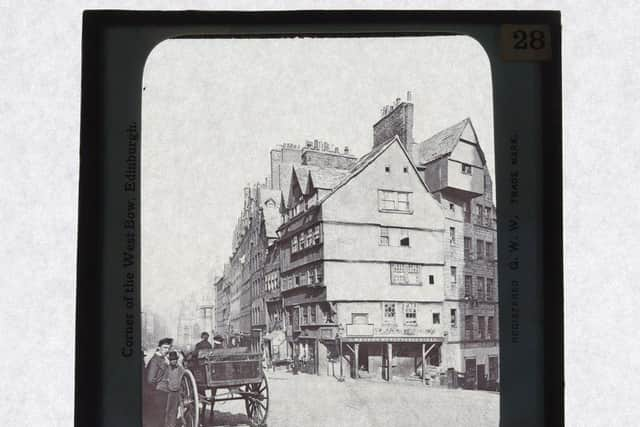'Magic Lantern' city emerges as box of 19th Century photos found
The rediscovered 19th Century images of Edinburgh were found by city curators embroiled in a massive inventory of the 200,000 or so items in its collection.
The contents of the box have cast new light on a rapidly changing city defined by landscapes which are both familiar and yet unexpected.
Advertisement
Hide AdAdvertisement
Hide AdA shot of Royal Infirmary of Edinburgh taken from the Meadows shows sheep grazing in the foreground. Another captures Craigleith quarry, which closed in the early 1940s, and the city skyline and Arthur’s Seat looming in the distance.


Developed onto glass slides, the images would have been projected on to a screen using a “Magic Lantern”, the popular Victorian entertainment system that beamed the new fashion for photography right into the home.
While it is unclear how the images came to the museums, or who took the photographs, there are "tantalizing clues” that suggest a link with renowned Scottish photographer George Washington Wilson, a spokeswoman for Museums & Galleries Edinburgh said.
Wilson became established in Aberdeen in the 1850s as an artist and photographer, and quickly made a name for himself among the middle classes and landed gentry. In the mid 19th Century, his company was the largest and best known photographic and printing firm in the world.


A spokeswoman for Museums & Galleries Edinburgh said: “The rediscovery of these remarkable slides comes at a time when the Auld Reekie Retold team is returning to the Museum Collections Centre.
" After working from home for much of the project, the team has once again resumed the detective work of researching and recording collections held in the store.”
A series of Auld Reekie Podcasts is now being produced, with photographs archived in the collection a key inspiration for the programmes.
The first podcast, due to be released on Monday, will tell the story of Leith’s photographic history through a walking tour, which can be undertaken on foot or from the home. Other programmes in the series will look at the photography of an Edinburgh childhood, art and the recording of social history and the backstory of a photographic viewer.


A message from the Editor:Thank you for reading this article. We're more reliant on your support than ever as the shift in consumer habits brought about by Coronavirus impacts our advertisers.
If you haven't already, please consider supporting our trusted, fact-checked journalism by taking out a digital subscription.
Comments
Want to join the conversation? Please or to comment on this article.
